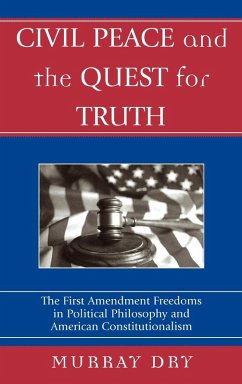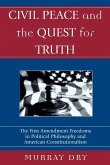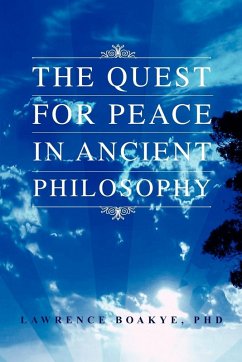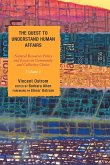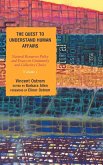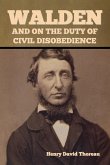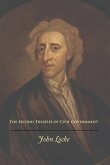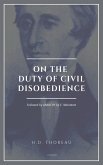Murray Dry
Civil Peace and the Quest for Truth
The First Amendment Freedoms in Political Philosophy and American Constitutionalism
Murray Dry
Civil Peace and the Quest for Truth
The First Amendment Freedoms in Political Philosophy and American Constitutionalism
- Gebundenes Buch
- Merkliste
- Auf die Merkliste
- Bewerten Bewerten
- Teilen
- Produkt teilen
- Produkterinnerung
- Produkterinnerung
Dry examines the U.S. Supreme Court's treatment of the First Amendment freedoms of religion and speech against the founding of the American Constitution and its philosophical underpinnings.
Andere Kunden interessierten sich auch für
![Civil Peace and the Quest for Truth Civil Peace and the Quest for Truth]() Murray DryCivil Peace and the Quest for Truth59,99 €
Murray DryCivil Peace and the Quest for Truth59,99 €![The Quest for Peace in Ancient Philosophy The Quest for Peace in Ancient Philosophy]() Lawrence BoakyeThe Quest for Peace in Ancient Philosophy14,99 €
Lawrence BoakyeThe Quest for Peace in Ancient Philosophy14,99 €![The Quest to Understand Human Affairs The Quest to Understand Human Affairs]() Vincent OstromThe Quest to Understand Human Affairs80,99 €
Vincent OstromThe Quest to Understand Human Affairs80,99 €![The Quest to Understand Human Affairs The Quest to Understand Human Affairs]() Vincent OstromThe Quest to Understand Human Affairs186,99 €
Vincent OstromThe Quest to Understand Human Affairs186,99 €![Walden, and On the Duty of Civil Disobedience Walden, and On the Duty of Civil Disobedience]() Henry David ThoreauWalden, and On the Duty of Civil Disobedience19,99 €
Henry David ThoreauWalden, and On the Duty of Civil Disobedience19,99 €![The Second Treatise of Civil Government The Second Treatise of Civil Government]() John LockeThe Second Treatise of Civil Government13,99 €
John LockeThe Second Treatise of Civil Government13,99 €![On the Duty of Civil Disobedience On the Duty of Civil Disobedience]() Henry David ThoreauOn the Duty of Civil Disobedience16,99 €
Henry David ThoreauOn the Duty of Civil Disobedience16,99 €-
-
-
Dry examines the U.S. Supreme Court's treatment of the First Amendment freedoms of religion and speech against the founding of the American Constitution and its philosophical underpinnings.
Produktdetails
- Produktdetails
- Verlag: Lexington Books
- Seitenzahl: 320
- Erscheinungstermin: 17. November 2004
- Englisch
- Abmessung: 235mm x 157mm x 23mm
- Gewicht: 672g
- ISBN-13: 9780739107461
- ISBN-10: 0739107461
- Artikelnr.: 31204336
- Herstellerkennzeichnung
- Libri GmbH
- Europaallee 1
- 36244 Bad Hersfeld
- gpsr@libri.de
- Verlag: Lexington Books
- Seitenzahl: 320
- Erscheinungstermin: 17. November 2004
- Englisch
- Abmessung: 235mm x 157mm x 23mm
- Gewicht: 672g
- ISBN-13: 9780739107461
- ISBN-10: 0739107461
- Artikelnr.: 31204336
- Herstellerkennzeichnung
- Libri GmbH
- Europaallee 1
- 36244 Bad Hersfeld
- gpsr@libri.de
By Murray Dry
1 Part One: Religious Freedom and Freedom of Speech in the American
Founding 2 Chapter 1: The American Founding and the Puritan Origins 3
Chapter 2: Religious Freedom and Freedom of Speech in the State
Constitutions of the Confederation Period 4 Chapter 3: The Federal
Constitution and the Bill of Rights 5 Chapter 4: The Postfounding Debate on
Freedom of Speech: The Sedition Act, the Kentucky and Virginia Resolutions,
and the Virginia 6 Part Two: The First Amendment Freedoms in Political
Philosophy 7 Chapter 5: Ancient Political Philosophy: Plato, Aristotle,
Thucydides 8 Chapter 6: Seventeenth Century Political Philosophy: Bacon,
Hobbes, Milton, Locke, and Spinoza 9 Chapter 7: Montesquieu's Constitution
of Liberty: The Spirit of the Laws 10 Chapter 8: John Stuart Mill's On
Liberty 11 Part Three: The Supreme Court's Treatment of Freedom of Speech
and Religious Freedom 12 Section A: Freedom of Speech 13 Chapter 9:
Seditious Libel and Fifty Years of "Clear and Present Danger": From Schenck
to Brandenburg 14 Chapter 10: The Preferred Position Doctrine and the
Categorical Approach to Freedom of Speech: Libel 15 Chapter 11: The
Increased Protection for "Fighting Words" and other "Offensive Speech,"
Obscenity, Pornography, and Commercial Speech 16 Chapter 12: Money and
Speech and the Public Forum (or Time, Place and Manner) Doctrine 17 Section
B 18 Chapter 13: Free Exercise Clause 19 Chapter 14: The Establishment
Clause I 20 Chapter 15: The Establishment Clause II
Founding 2 Chapter 1: The American Founding and the Puritan Origins 3
Chapter 2: Religious Freedom and Freedom of Speech in the State
Constitutions of the Confederation Period 4 Chapter 3: The Federal
Constitution and the Bill of Rights 5 Chapter 4: The Postfounding Debate on
Freedom of Speech: The Sedition Act, the Kentucky and Virginia Resolutions,
and the Virginia 6 Part Two: The First Amendment Freedoms in Political
Philosophy 7 Chapter 5: Ancient Political Philosophy: Plato, Aristotle,
Thucydides 8 Chapter 6: Seventeenth Century Political Philosophy: Bacon,
Hobbes, Milton, Locke, and Spinoza 9 Chapter 7: Montesquieu's Constitution
of Liberty: The Spirit of the Laws 10 Chapter 8: John Stuart Mill's On
Liberty 11 Part Three: The Supreme Court's Treatment of Freedom of Speech
and Religious Freedom 12 Section A: Freedom of Speech 13 Chapter 9:
Seditious Libel and Fifty Years of "Clear and Present Danger": From Schenck
to Brandenburg 14 Chapter 10: The Preferred Position Doctrine and the
Categorical Approach to Freedom of Speech: Libel 15 Chapter 11: The
Increased Protection for "Fighting Words" and other "Offensive Speech,"
Obscenity, Pornography, and Commercial Speech 16 Chapter 12: Money and
Speech and the Public Forum (or Time, Place and Manner) Doctrine 17 Section
B 18 Chapter 13: Free Exercise Clause 19 Chapter 14: The Establishment
Clause I 20 Chapter 15: The Establishment Clause II
1 Part One: Religious Freedom and Freedom of Speech in the American
Founding 2 Chapter 1: The American Founding and the Puritan Origins 3
Chapter 2: Religious Freedom and Freedom of Speech in the State
Constitutions of the Confederation Period 4 Chapter 3: The Federal
Constitution and the Bill of Rights 5 Chapter 4: The Postfounding Debate on
Freedom of Speech: The Sedition Act, the Kentucky and Virginia Resolutions,
and the Virginia 6 Part Two: The First Amendment Freedoms in Political
Philosophy 7 Chapter 5: Ancient Political Philosophy: Plato, Aristotle,
Thucydides 8 Chapter 6: Seventeenth Century Political Philosophy: Bacon,
Hobbes, Milton, Locke, and Spinoza 9 Chapter 7: Montesquieu's Constitution
of Liberty: The Spirit of the Laws 10 Chapter 8: John Stuart Mill's On
Liberty 11 Part Three: The Supreme Court's Treatment of Freedom of Speech
and Religious Freedom 12 Section A: Freedom of Speech 13 Chapter 9:
Seditious Libel and Fifty Years of "Clear and Present Danger": From Schenck
to Brandenburg 14 Chapter 10: The Preferred Position Doctrine and the
Categorical Approach to Freedom of Speech: Libel 15 Chapter 11: The
Increased Protection for "Fighting Words" and other "Offensive Speech,"
Obscenity, Pornography, and Commercial Speech 16 Chapter 12: Money and
Speech and the Public Forum (or Time, Place and Manner) Doctrine 17 Section
B 18 Chapter 13: Free Exercise Clause 19 Chapter 14: The Establishment
Clause I 20 Chapter 15: The Establishment Clause II
Founding 2 Chapter 1: The American Founding and the Puritan Origins 3
Chapter 2: Religious Freedom and Freedom of Speech in the State
Constitutions of the Confederation Period 4 Chapter 3: The Federal
Constitution and the Bill of Rights 5 Chapter 4: The Postfounding Debate on
Freedom of Speech: The Sedition Act, the Kentucky and Virginia Resolutions,
and the Virginia 6 Part Two: The First Amendment Freedoms in Political
Philosophy 7 Chapter 5: Ancient Political Philosophy: Plato, Aristotle,
Thucydides 8 Chapter 6: Seventeenth Century Political Philosophy: Bacon,
Hobbes, Milton, Locke, and Spinoza 9 Chapter 7: Montesquieu's Constitution
of Liberty: The Spirit of the Laws 10 Chapter 8: John Stuart Mill's On
Liberty 11 Part Three: The Supreme Court's Treatment of Freedom of Speech
and Religious Freedom 12 Section A: Freedom of Speech 13 Chapter 9:
Seditious Libel and Fifty Years of "Clear and Present Danger": From Schenck
to Brandenburg 14 Chapter 10: The Preferred Position Doctrine and the
Categorical Approach to Freedom of Speech: Libel 15 Chapter 11: The
Increased Protection for "Fighting Words" and other "Offensive Speech,"
Obscenity, Pornography, and Commercial Speech 16 Chapter 12: Money and
Speech and the Public Forum (or Time, Place and Manner) Doctrine 17 Section
B 18 Chapter 13: Free Exercise Clause 19 Chapter 14: The Establishment
Clause I 20 Chapter 15: The Establishment Clause II

